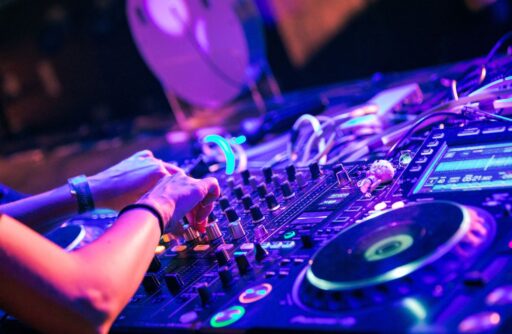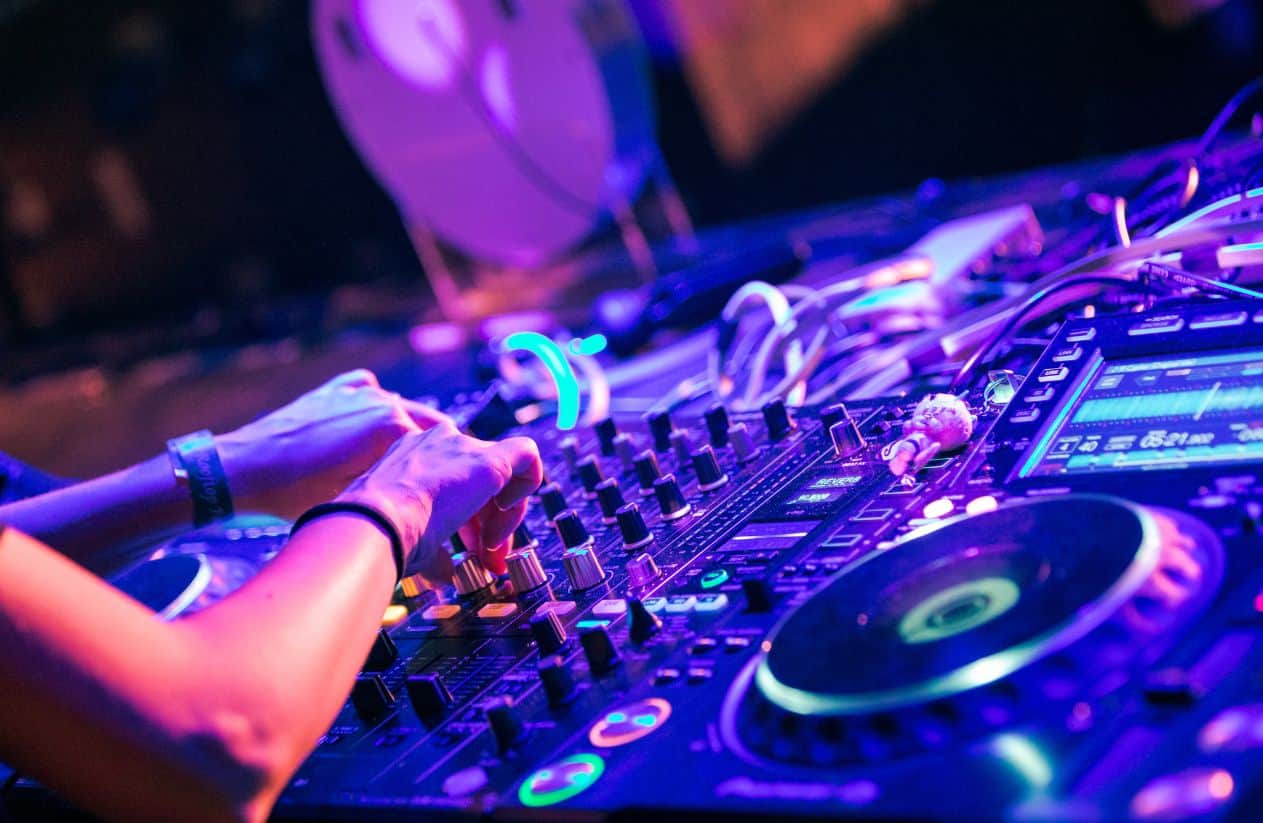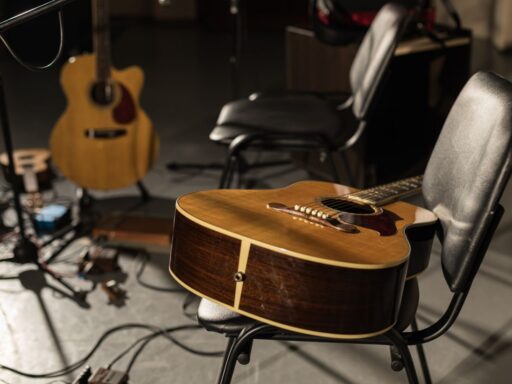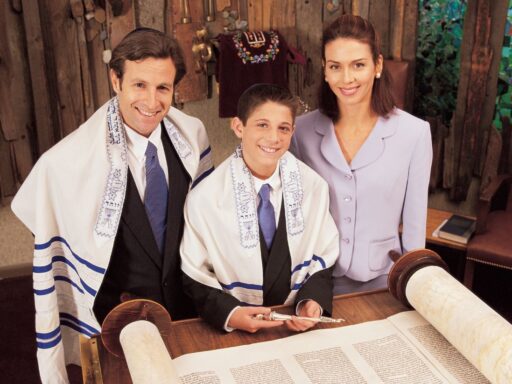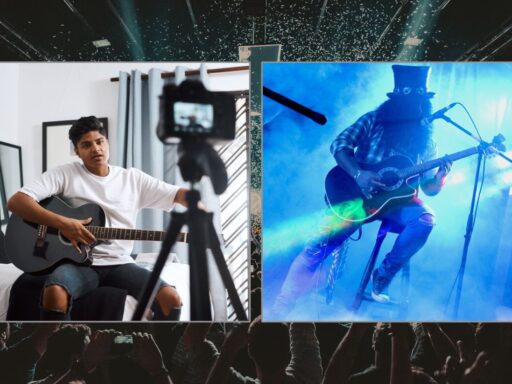Imagine stepping into an event where the music perfectly captures the mood, energizes the crowd, and transforms the atmosphere from ordinary to extraordinary. That’s the power of a great DJ.
But how do you ensure your event hits that perfect note? In this comprehensive guide to hiring a DJ, we’ll walk you through every crucial step, from understanding your event’s unique musical needs to finalizing the contract.
We’ll explore how to find a DJ who not only plays music but crafts an unforgettable experience.
Whether you’re planning a wedding, corporate gala, or a lively birthday bash, this guide will equip you with the insights and tools you need to make your event a resounding success. Let’s dive in and make your musical vision a reality.
Understanding Your Event’s Musical Needs: The Foundation of a Perfect Soundtrack

Before you even begin searching for a DJ, it’s crucial to lay the groundwork by deeply understanding your event’s musical needs.
This isn’t just about picking a genre; it’s about curating an auditory experience that resonates with your guests and enhances the overall atmosphere.
A well-thought-out musical plan can transform any gathering from mundane to magical. This part of the guide to hiring a DJ will help you define those needs.
Detailed Breakdown of Event Types and Their Musical Requirements:
Every event has a unique heartbeat, and the music should amplify it. Consider these examples:
- Weddings: Often require a blend of romantic ballads for ceremonies, upbeat tunes for receptions, and classic hits to get everyone on the dance floor.
- Corporate Galas: Demand sophisticated, ambient music for networking, and perhaps some energizing tracks for award ceremonies or after-parties.
- Birthday Parties: Vary wildly depending on age. A child’s party might need popular kids’ songs, while an adult’s celebration could range from nostalgic throwbacks to current hits.
- Festivals: These events often require a DJ who is skilled at blending various genres, and keeping the energy high for long periods of time.
Analyzing Audience Demographics and Preferences with Real-Life Examples:
Understanding your audience is key. For instance:
- Imagine you’re hosting a reunion for a graduating class from the 90s. Playing popular 90s hits is a sure way to evoke nostalgia and get people engaged.
- Hosting an event with a diverse age group? A skilled DJ can blend classic hits with modern tracks to keep everyone happy.
- Hosting an event for a specific cultural group? A DJ that is knowledgeable in the music that is important to that culture will be a must.
Creating the Desired Atmosphere Through Music:
Music is a powerful tool for setting the mood.
- For a relaxed, sophisticated vibe, consider smooth jazz or downtempo electronic music.
- For a high-energy dance party, upbeat pop, hip-hop, or EDM might be perfect.
- For a themed event, the music must match the theme. For example, a 70’s themed party, will require 70’s music.
Creating a Music Planning Worksheet:
To help you organize your thoughts, consider creating a simple worksheet with these sections:
- Event Type: (Wedding, corporate, birthday, etc.)
- Audience Demographics: (Age range, cultural backgrounds, etc.)
- Desired Atmosphere: (Relaxed, energetic, romantic, etc.)
- Must-Play Genres/Songs:
- Do-Not-Play Genres/Songs:
- Special moments that require music: (Speeches, dances, etc.)
By carefully considering these elements, you’ll be well on your way to finding a DJ who can bring your musical vision to life.
Also check our article “Live Band or DJ: The Ultimate Event Music Guide”
Finding the Perfect DJ: Curating Your Event’s Sonic Soul
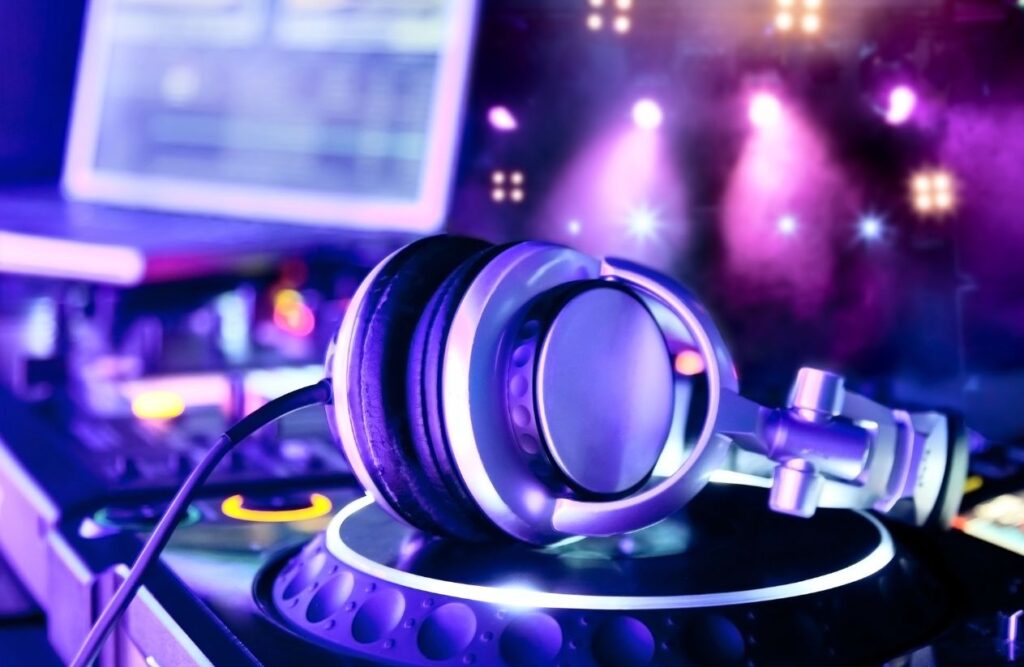
The quest for the perfect DJ is akin to casting the lead in a musical production; they set the rhythm, control the tempo, and ultimately, define the vibe.
This part of our hiring DJ guide dives deeper into how to discover, evaluate, and select a DJ who not only meets your technical needs but also resonates with the soul of your event.
Where to Look: Beyond the Basics – Unearthing Hidden Gems:
- Online Platforms: The Digital Audition Stage:
- Don’t just skim profiles; delve into reviews and testimonials. Look for specific mentions of their ability to read the crowd, handle requests, and manage technical issues.
- Pay close attention to sample mixes. Does their style align with your vision? Are their transitions smooth and engaging?
- Explore niche platforms that cater to specific genres or event types.
- Referrals: The Power of Personal Endorsement:
- Ask for detailed accounts of past performances. What made the DJ stand out? Were there any challenges, and how were they handled?
- Seek referrals from diverse sources: venue managers, photographers, and even caterers, as they often work closely with DJs.
- Professional Networks: Tapping into Industry Expertise:
- Attend industry events or workshops to network with DJs and event professionals.
- Engage with online forums and communities dedicated to event planning and music.
Essential Qualities: Beyond the Technical – The Art of DJing:
- Music Selection: The Storyteller of Sound:
- A great DJ doesn’t just play songs; they weave a narrative through music, creating emotional arcs and building anticipation.
- They possess a deep understanding of music history and trends, allowing them to curate playlists that are both timeless and contemporary.
- Technical Skills: The Maestro of the Mixing Board:
- Seamless transitions, precise beatmatching, and the ability to adapt to unexpected technical challenges are hallmarks of a skilled DJ.
- They understand acoustics, sound levels, and equipment setup, ensuring optimal sound quality for any venue.
- Professionalism: The Ambassador of Your Event:
- A DJ’s demeanor reflects on your event. They should be punctual, courteous, and dressed appropriately.
- They handle requests and feedback with grace, maintaining a positive and engaging presence.
- Communication: The Bridge Between Vision and Reality:
- Clear and consistent communication is essential. A good DJ will listen attentively to your needs and provide thoughtful suggestions.
- They’ll be responsive to your inquiries and keep you informed throughout the planning process.
Interviewing and Evaluating Potential DJs: The Art of the Deep Dive:
- Beyond the Basic Questions:
- “Describe a time you had to adapt your playlist on the fly due to unexpected audience reactions.”
- “How do you ensure your equipment setup complements the venue’s acoustics?”
- “What’s your approach to handling song requests that don’t align with the event’s theme?”
- “How do you keep the energy consistent throughout the entire event?”
- Red Flags: Trusting Your Intuition:
- Avoid DJs who seem dismissive of your preferences or unwilling to collaborate.
- Be wary of those who make unrealistic promises or guarantees.
- If they show up late, or unprepared to any meetings, this is a very bad sign.
- If they bad mouth other DJ’s, this is a very bad sign.
By conducting thorough research, asking insightful questions, and trusting your instincts, you can find a DJ who will not only meet your expectations but exceed them, transforming your event into an unforgettable experience.
Related Content: How Much Does a Wedding DJ Cost
Negotiating Contracts and Fees: Securing Your Investment in Sound

The excitement of finding the perfect DJ can quickly turn to anxiety if the contract and fee negotiations aren’t handled with care.
This section of our guide aims to demystify the process, empowering you to secure a fair agreement that protects your interests and ensures a smooth, stress-free event.
Understanding DJ Fee Structures and Factors That Influence Them:
DJ fees aren’t arbitrary. They reflect a combination of expertise, equipment, and demand. Key factors include:
- Experience and Reputation: Highly sought-after DJs with extensive experience and glowing reviews naturally command higher fees.
- Event Duration and Date: Longer events and peak-season dates (like New Year’s Eve or major holidays) typically incur higher costs.
- Equipment and Setup: DJs with top-of-the-line equipment, elaborate lighting setups, or custom sound systems may charge more.
- Travel and Logistics: If your event is in a remote location or requires extensive travel, expect to cover those costs.
- Additional Services: Some DJs offer extra services like MCing, special effects, or custom playlists, which can add to the overall fee.
Understanding these factors will help you assess whether a DJ’s quote is reasonable and negotiate effectively.
Key Contract Terms: Payment, Cancellation, Equipment, and Overtime:
A well-drafted contract protects both you and the DJ. Pay close attention to these key terms:
- Payment Schedule: Clarify deposit requirements, payment deadlines, and acceptable payment methods.
- Cancellation Policy: Understand the terms for cancellations by either party, including any non-refundable deposits or penalties.
- Equipment and Setup: Specify the equipment the DJ will provide, including sound systems, lighting, and any special effects.
- Overtime Rates: Establish clear rates for any overtime hours beyond the agreed-upon event duration.
- Liability and Insurance: Ensure the DJ has adequate liability insurance to cover any potential accidents or damages.
- Music Rights: Clarify who is responsible for obtaining any necessary music licenses or permissions.
- Performance Expectations: Explicitly define what is expected from the DJ in terms of performance, appearance, and conduct.
Tips for Effective Negotiation and Avoiding Common Pitfalls:
- Do Your Research: Get multiple quotes from DJs with similar experience and equipment to establish a benchmark.
- Be Clear and Specific: Clearly outline your expectations and requirements in the contract.
- Don’t Be Afraid to Negotiate: Many DJs are willing to negotiate on price or services, especially if you’re flexible on dates or times.
- Read the Fine Print: Don’t skim the contract; read every clause carefully and ask questions if anything is unclear.
- Get Everything in Writing: Ensure all agreements and modifications are documented in writing.
- Avoid Verbal Agreements: Relying on verbal agreements can lead to misunderstandings and disputes.
- Don’t pay the entire sum up front: Always keep some of the payment to be paid after the event has been completed.
Providing a Sample Contract Checklist:
To help you navigate the contract process, here’s a sample checklist:
- DJ’s full legal name and contact information
- Your full legal name and contact information
- Event date, time, and location
- Agreed-upon fee and payment schedule
- Cancellation policy for both parties
- Equipment and setup details
- Overtime rates and policies
- Liability and insurance information
- Music rights and licensing
- Performance expectations
- Signatures from both parties
By approaching contract and fee negotiations with diligence and attention to detail, you can secure a fair agreement that sets the stage for a successful and memorable event.
Collaboration and Preparation: Setting the Stage for Sonic Success
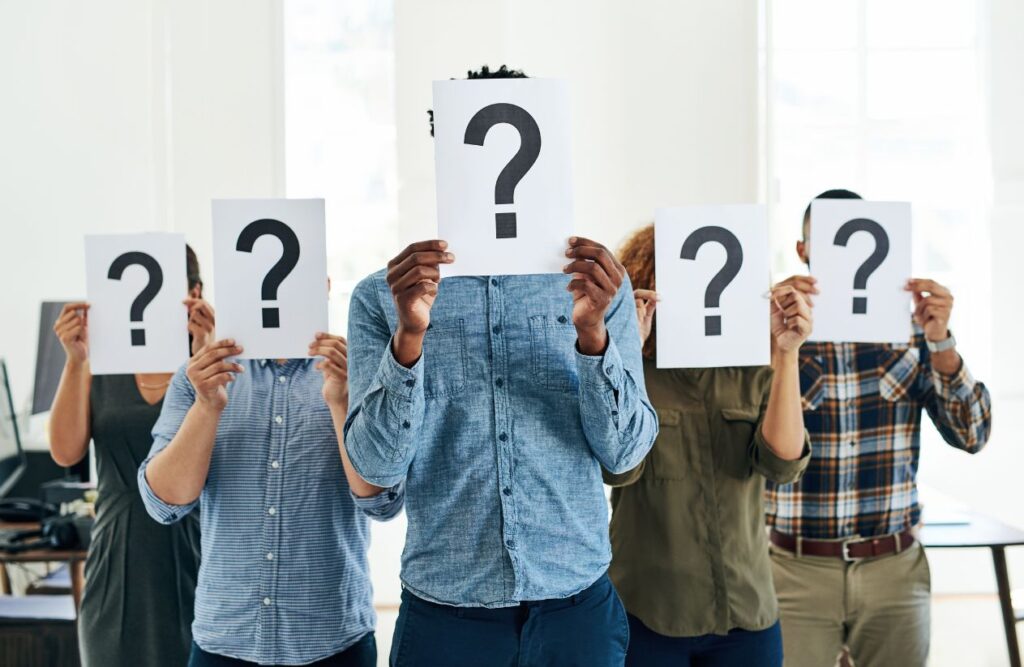
The magic of a truly memorable event lies not just in the DJ’s talent, but in the seamless collaboration and meticulous preparation that precedes it.
This phase of the hiring DJ process ensures that your musical vision is translated into a flawless auditory experience.
The Importance of Pre-Event Communication and Planning:
- Initial Consultation: This is where you lay the foundation. Discuss your event’s theme, atmosphere, and any specific musical requirements.
- Regular Check-ins: Maintain open communication with your DJ leading up to the event. This allows for adjustments and ensures everyone is on the same page.
- Detailed Itinerary: Provide a comprehensive schedule, highlighting key moments like speeches, dances, or special announcements.
- Venue Walkthrough: If possible, conduct a walkthrough with your DJ to assess the space and discuss setup requirements.
Creating a Detailed Playlist and Managing Song Requests:
- Must-Play and Do-Not-Play Lists: Provide your DJ with a list of songs or genres you absolutely want or don’t want to hear.
- Song Request Policy: Clarify how you want song requests to be handled. Will the DJ take requests from guests, or stick to the playlist?
- Flexibility and Adaptability: While it’s important to provide guidance, also allow the DJ some flexibility to read the room and adjust the music accordingly.
- Mood Transitions: Discuss how the DJ will transition between different musical styles or moods throughout the event.
Technical and Logistical Coordination: Venue Setup and Equipment:
- Venue Specifications: Provide detailed information about the venue, including size, layout, power outlets, and acoustics.
- Equipment Requirements: Discuss the DJ’s equipment needs, including sound systems, lighting, and any special effects.
- Sound Check: Schedule a sound check prior to the event to ensure optimal sound quality and address any technical issues.
- Point of Contact: Designate a point of contact for the DJ on the day of the event to handle any logistical issues.
Providing a List of Helpful Tools for Organization:
- Online Playlist Collaboration Tools: Platforms like Spotify collaborative playlists or Google Sheets can help you and the DJ organize song lists.
- Event Planning Software: Tools like Trello or Asana can help manage tasks, deadlines, and communication.
- Venue Layout Software: Programs like RoomSketcher or Floorplanner can assist in planning equipment placement.
- Sound Level Meters: These apps can help monitor sound levels during the event to ensure compliance with venue regulations.
By prioritizing collaboration and preparation, you can ensure that your DJ is fully equipped to create a seamless and unforgettable musical experience for your event.
You can also read our article about “Guide to Booking Top Edmonton DJs for Your Event”
Conclusion
In the realm of event planning, the significance of a skilled DJ cannot be overstated. As we’ve explored in this comprehensive guide to hiring a DJ, the right musical accompaniment can transform an ordinary gathering into an extraordinary experience.
From understanding your event’s unique musical needs to navigating the intricacies of contracts and collaboration, each step is crucial. Remember, careful selection and clear communication are your allies in this endeavor.
Don’t hesitate to ask questions, seek recommendations, and trust your instincts. With thorough preparation and a collaborative spirit, you’ll not only secure a DJ, but a partner in creating a memorable soundtrack for your event.
Embrace the process, and let the music set the stage for an unforgettable occasion.
To make it more convenient we also give you a list of our most recommended DJs that you can book or hire for the event below:
Frequently Asked Questions About Hiring a DJ
How far in advance should I book a DJ for my event?
Ideally, you should begin your search and booking process at least 3-6 months in advance, especially for popular dates or events during peak seasons. For weddings or large-scale events, even a year ahead is advisable. This allows ample time for consultations, playlist creation, and contract negotiations, ensuring you secure your preferred DJ.
What type of equipment should a professional DJ provide?
A professional DJ should provide a high-quality sound system, including speakers, amplifiers, and a mixer. They should also have a diverse music library, microphones for announcements, and potentially lighting equipment. Backup equipment is also essential to prevent disruptions. Always clarify the specific equipment they’ll be using and ensure it’s suitable for your venue size and event type.
How can I ensure the DJ’s music aligns with my cultural or thematic event?
During the initial consultation, provide the DJ with detailed information about your event’s theme or cultural background. Share specific music genres, artists, or songs that are essential. If possible, provide examples or playlists for reference. A skilled DJ will be able to adapt their style and music selection to match your event’s unique requirements.
What happens if the DJ cancels at the last minute?
A comprehensive contract should include a cancellation policy that outlines procedures for such situations. A reputable DJ will have backup plans or a network of colleagues they can call upon. If cancellation is unavoidable, they should provide a suitable replacement or offer a refund. It’s also wise to have a contingency plan in place, such as having a backup playlist or contact information for alternative DJs.
How do I handle song requests from guests during the event?
Discuss your preferences regarding song requests with the DJ beforehand. Some DJs are comfortable taking requests, while others prefer to stick to a pre-planned playlist. Clarify how you want requests to be handled, whether they should be submitted in writing or verbally, and whether you want the DJ to prioritize or filter requests.
What are some creative ways to incorporate the DJ’s performance into the event?
Beyond playing music, DJs can enhance your event with creative touches. Consider incorporating lighting effects, custom mixes, or interactive elements like karaoke or trivia. You can also ask the DJ to MC or make announcements, adding a personal touch to your event. Discuss your ideas with the DJ and explore their creative suggestions.
How do I address sound level concerns during the event?
Communicate any sound level restrictions or concerns with the DJ beforehand. They should be able to adjust their equipment and volume to comply with venue regulations. During the event, designate someone to monitor sound levels and communicate any issues to the DJ promptly. You can also use a sound level meter app to track decibel levels.
